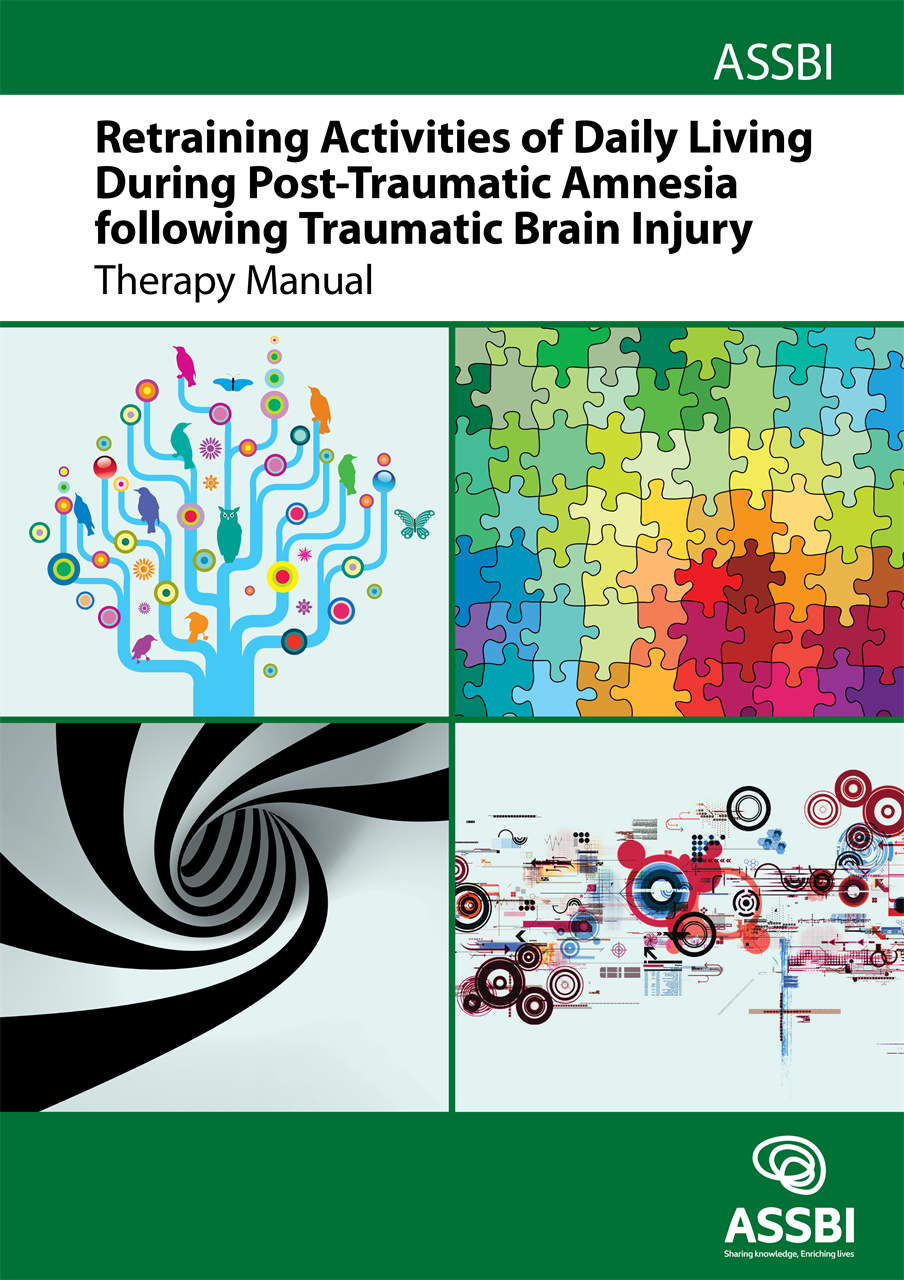| Retraining Activities of Daily Living During Post-Traumatic Amnesia following Traumatic Brain Injury: Therapy Manual Written by Jessica Trevena-Peters, Adam McKay & Jennie Ponsford Post-traumatic amnesia (PTA) is feature of traumatic brain injury (TBI) that commonly follows emergence from coma. It is characterised by generalised cognitive disturbance or delirium, confusion, disorientation, anterograde and retrograde amnesia, and, often agitation. There is considerable variability in the assessment and management of patients in PTA and limited evidence to guide rehabilitation during this early phase of recovery. In this context, a randomised controlled trial was conducted to evaluate the efficacy of activities of daily living (ADL) retraining during PTA. This therapy manual (developed by Dr Jessica Trevena-Peters, Dr Adam McKay and Prof Jennie Ponsford) provides background information regarding PTA, an outline of the evidence underpinning the approach of skills (ADL) retraining during PTA, and guiding principles for intervention delivery, particularly procedural and errorless learning. Activities of daily living addressed in the manual include personal care (bathing, grooming, dressing), self-feeding, and light meal preparation. Recommendations regarding management and assessment of agitation, PTA assessment, and goal setting are also included. The intervention approach outlined in this manual has been shown to be efficacious and cost effective in enhancing functional independence and hospital discharge. Furthermore, delivering this intervention does not increase levels of agitation during PTA nor does agitated behaviour limit therapy participation. Treating Occupational Therapists perspectives on delivery of the structured ADL retraining during PTA, using a procedural and errorless approach, have also been published, in addition to the use of goal attainment scaling during PTA. |




